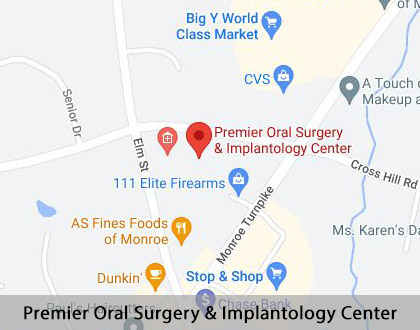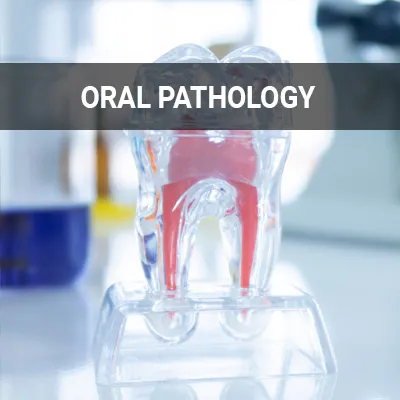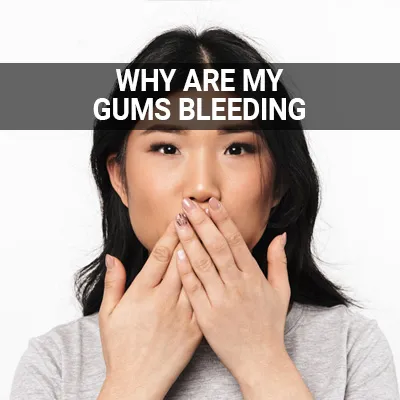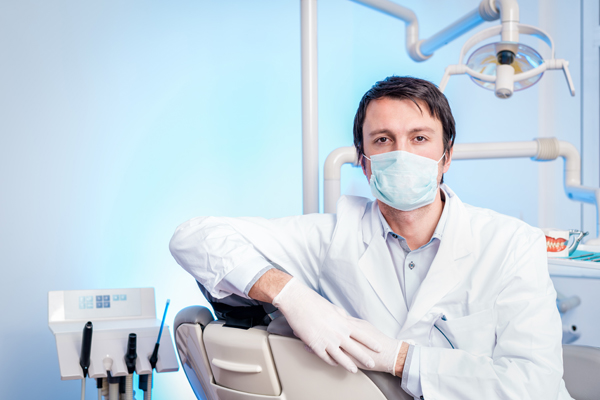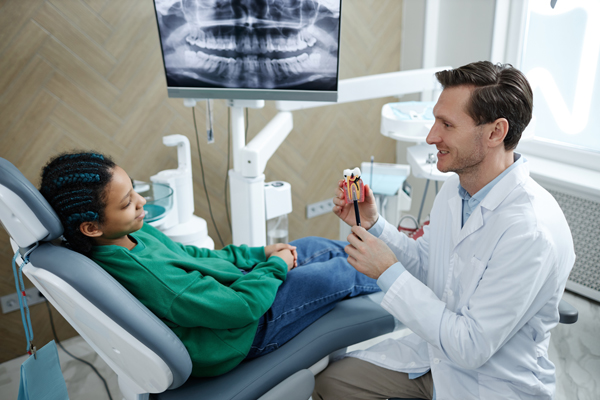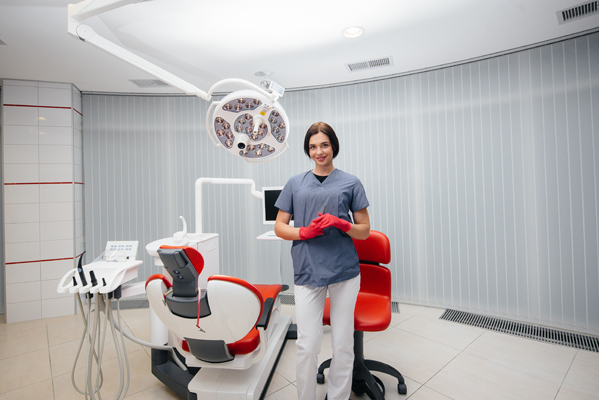Oral Cancer Screening Monroe, CT
Our oral cancer screenings involve an oral surgeon looking for signs of cancer or precancerous conditions in the mouth over the span of a few minutes. The goal is to detect cancer early so you can start treatment as soon as possible. Early intervention can lead to better outcomes.
Screenings for oral cancer are available at Premier Oral Surgery & Implantology Center in Monroe and the surrounding area. If concerned about the state of your oral health, call us at (475) 474-6204 to schedule an appointment for an evaluation.
Oral Cancer Screening Explained
An oral cancer screening is an inspection of a patient’s oral cavity and other tissues in the mouth for signs of cancer. This visual and physical exam includes the throat, sinuses, and larynx. A cancer screening allows dental professionals to check for signs of oral cancer or any precancerous lesions.
According to the American Cancer Society, an estimated 54,000 new oral cavity or oropharyngeal cancer cases occur each year. While the early stages of oral cancer symptoms can sometimes be painful, in many cases, they are painless. The intention is to catch it at a stage when it is easiest to remove and treat. Cancer screenings are done routinely to monitor the state of patients’ mouths and detect any unusual signs indicative of early cancer development.
“An oral cancer screening is an inspection of a patient’s oral cavity and other tissues for signs of cancer.”
How an Oral Cancer Screening Gets Performed
A basic oral cancer screening can be performed by an oral surgeon or done as part of a routine dental appointment. The screening requires no special preparation. The practitioner will do a thorough visual and physical check of the lips, gums, tongue, inner cheeks, the roof of the mouth, and the back of the throat. They will also likely feel along the jaw and neck with their hands. The goal is to look for lumps, spots, discoloration, or any other unusual symptoms.
An oral surgeon may perform a more in-depth screening that involves the patient rinsing their mouth with blue dye before the exam. Any questionable cells in the mouth will absorb the dye, making them easier to see. In-depth screenings are usually necessary when patients exhibit one or more signs.
“A basic oral cancer screening can be performed by an oral surgeon or done as part of a routine dental appointment.”
What Oral Cancer Screenings Reveal
Suppose nothing unusual is found during a patient’s initial screening. In that case, they should continue regular dental checkups, including oral cancer screenings. If the practitioner discovers any signs of cancer, they may recommend a follow-up visit in a few weeks to see if the area of concern is still there or if it has changed. An oral surgeon may also recommend a biopsy, which involves gathering and testing a tissue sample for the presence of cancer cells.
It is important to remember that recommending a screening does not mean the patient has oral cancer. These tests are preventative measures that should be taken even when no symptoms are present. The earlier oral cancer is detected, the more effective treatment can be. Therefore, practitioners examine all patients even during their routine dental appointments. Our team advises patients on how to improve their oral health regimen and ways to prevent oral cancer.
“An oral surgeon may also recommend a biopsy, which involves gathering and testing a tissue sample for the presence of cancer cells.”
Check out what others are saying about our dental services on Yelp: Oral Cancer Screening in Monroe, CT
Risk Assessment
During an oral cancer screening, our team will look for specific signs and symptoms. These include:
- A lump or growth inside the mouth
- A mouth or lip sore that does not heal
- Constant sore throat or cough
- Dark, red, or white spots on the oral soft tissues, tongue, or lip
- Trouble swallowing or moving the tongue
Oral cancer risk factors include tobacco use, heavy alcohol consumption, and extreme sun exposure to the lips. Gender can also play a part, as oral cancer is twice as likely to occur in men than in women. It is also more common in adults over the age of 50.
Recently, the human papillomavirus (HPV) has been linked to oropharyngeal cancer, which is the area of the throat at the back of the mouth. HPV oropharyngeal cancers typically develop near or on the tonsils, making them difficult to detect. HPV is considered a leading cause of oropharyngeal cancer.
“During an oral cancer screening, our team will look for specific signs and symptoms.”
Questions Answered on This Page
Q. What is an oral cancer screening? Why is an oral cancer screening done?
Q. How is an oral cancer screening performed?
Q. What can an oral cancer screening reveal?
Q. What are the risks associated with oral cancer?
Q. Who should receive an oral cancer screening?
People Also Ask
Q. What are oral pathology signs and symptoms?
Q. What kind of injuries can cause oral bleeding?
Q. What are the signs of jaw pain?
Who Should Receive an Oral Cancer Screening
While everyone should see a dental professional at least once a year to keep their mouth healthy, there is some debate on how often a patient should get an oral cancer screening. People who make lifestyle choices that put them at higher risk will likely have to undergo the screening test more often. This includes tobacco use, heavy alcohol consumption, and excessive sun exposure, in addition to having had oral cancer.
Patients with no risk factors may not need to undergo oral cancer screening at every routine appointment. However, since oral cancers can go undetected in their early stages, it is a good idea to have it done periodically as part of preventive dental care. Our team will answer any questions or concerns patients may have about whether screening is right for them.
“…since oral cancers can go undetected in their early stages, it is a good idea to have it done periodically as part of preventive dental care.”
Frequently Asked Questions
Q. Are oral cancer screenings painful?
A. Oral cancer screenings involve a visual exam of the tissues in and around your mouth. It is typically a physical exam in which the oral surgeon will feel for lumps around the neck, tongue, and jaw. A typical screening is painless.
Q. How often do I need an oral cancer screening?
A. An oral cancer screening is often part of a preventative dental exam. If you have multiple risk factors or have had oral cancer in the past, you may be recommended for screenings more often. Our staff will let you know what they suggest for your specific case.
Q. What happens during a cancer screening?
A. The oral surgeon will look closely at your lips, cheeks, tongue, and soft tissues of the mouth and throat. They may also move the tongue from side to side to look at all sections of it. The goal is to detect any unusual patches, bumps, or sores that may indicate a more serious issue.
Q. Who is most at risk for oral cancer?
A. Tobacco users and heavy alcohol drinkers are most at risk for developing oral cancer. Gender also plays a factor, as men are twice as likely as women to get diagnosed. People with a history of oral HPV infections are also at greater risk, even if they do not smoke or drink.
Q. Who can perform an oral cancer screening?
A. Any dental professional is trained in performing routine oral cancer screenings. That includes oral surgeons. Primary care doctors may also screen for oral cancer, especially if they notice any unusual signs when checking the mouth and throat. Patients may be referred to a specialist if concerns arise, in which they will undergo more testing for a proper diagnosis.
Start Feeling Better – Visit Us Today
By visiting us as soon as possible, our team can help get you the professional treatment you need. Instead of waiting around and allowing the symptoms to get worse, we can provide you with treatment options.
Learn More About Oral Cancer Screening
Not all spots or lumps found in the mouth are cancerous. However, staying on top of your oral health and practicing preventative dental care, including any suggested oral cancer screenings, will help catch issues early on. Call our oral surgeon and team at Premier Oral Surgery & Implantology Center at (475) 474-6204 to schedule an appointment.
Helpful Related Links
- American Dental Association (ADA). Glossary of Dental Clinical Terms. 2023
- American Academy of Cosmetic Dentistry® (AACD). Home Page. 2023
- American Academy of Maxillofacial Prosthetics. American Academy of Maxillofacial Prosthetics. 2023
- American Association of Oral and Maxillofacial Surgeons. American Association of Oral and Maxillofacial Surgeons. 2023
- American College of Oral and Maxillofacial Surgery. American College of Oral and Maxillofacial Surgery. 2023
- National Cancer Institute (NCI). National Cancer Institute (NCI). 2023
- WebMD. WebMD’s Oral Care Guide. 2023
About our business and website security
- Premier Oral Surgery & Implantology Center was established in 2019.
- We accept the following payment methods: American Express, Cash, Discover, MasterCard, and Visa
- We serve patients from the following counties: Fairfield County
- We serve patients from the following cities: Monroe, Botsford, Stepney, Shelton, Trumbull, Ansonia, Derby, Oxford, Woodbridge, Newtown, and Redding
- Norton Safe Web. View Details
- Trend Micro Site Safety Center. View Details
Back to top of Oral Cancer Screening

